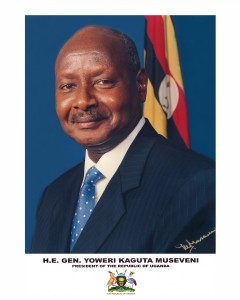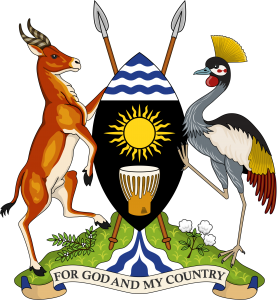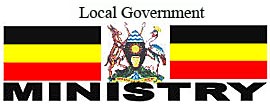- Profile
- Business
- Local Government
- Contact
- Ensuring that the local investment climate is functional for local SMEs
- Encouraging the formation of new enterprises and attracting external investment
- Investing in hard and soft infrastructure
- Supporting the growth of particular clusters of businesses
- Engaging in conscious regeneration of conflict afflicted northern Uganda
- Targeting special interest and disadvantaged groups The Decentralisation Policy, therefore, offers great opportunity not only to tackle poverty at household level but also to widen the tax base of the local governments. This enables them to finance service delivery and to be more accountable to their constituents.
Forging Local Economic Safety Nets: Uganda’s Road from Independence
Fifty years after independence in 1962, Uganda has braved many significant governance and economic challenges. With a young, fragile economy and democracy at the advent of independence, Uganda set out with a promise of hope to its citizens. The economy of Uganda had great potential, however previous political instability and erratic economic management produced a record of persistent economic decline that left Uganda among the world’s poorest and least-developed countries.

H.E. Gen. Yoweri, Kaguta Museveni, President of the Republic of Uganda
The 1990s were characterised by strong economic growth, along with changes in the country’s governance structures at sub-national level. In 1992, Uganda adopted decentralisation as the main mode of governance. This was later to be buttressed in the Constitution (1995) and the Local Governments Act (1997). The policy devolved powers and functional responsibilities over decision-making and service delivery to popularly elected local governments.
However, a Joint Review of Decentralisation held in 2004 revealed the serious limitations between economic policies and the benefits of the decentralisation policy. The major criticism at the time was the inability of the Government to exploit the comprehensive decentralised governance structures for more pro-poor economic development. As a result of this policy interrogation, a new and sixth objective on Decentralisation was agreed: ‘To Promote Local Economic Development (LED) in Order to Enhance People’s Incomes’.
‘The purpose of local economic development (LED) is to build up the economic capacity of a local area to improve its economic future and the quality of life for all. It is a process by which public, business and non-governmental sector partners work collectively to create better conditions for economic growth and employment generation.’
Source: World Bank
Local Governments in Uganda are continuously building networks with a variety of public and private agencies to plan, budget and implement custom-designed policies and projects geared at increasing the economic well-being of the respective communities.

The Hon. Adolf Mwesige, Minister of Local Government
Local Governments play an LED promotional role in terms of providing the right economic infrastructure, governance framework and through stimulating business development services. On the other hand, individual communities and areas within a given local government are also encouraged to adopt specific LED strategies to improve their economic competitiveness. As such, communities will continually improve their investment climate and business enabling environment and ultimately improve individual and taxable household incomes.
A number of best practices are merging and they include:
Uganda Local Governments, invite the international community to participate in business opportunities spurred by Uganda’s Decentralisation Programme
By Patrick Mutabwire, Ag. Permanent Secretary, Ministry of Local Government
In 1992 when Uganda announced its decentralisation programme, the main objective was to create effectiveness in public administration by relegating some of the central government powers, functions and competencies to the Local Governments. This would bring decision making and service delivery closer to the population and making development more people-centred.
Local Governments as centres of investment
Twenty years later, Government has observed that the effects of decentralization are far from better public administration and service delivery but that it has spurred business opportunities for both local and foreign investors. Local Governments in Uganda are now moving from the traditional role of local administration units to centres of investment and growth. Their operations have now been remodelled towards identifying opportunities for local economic investment and business growth, a move that has seen them improving the household incomes of the population and widening their revenue base.
Investment opportunities in Uganda’s Local Governments
There are very many investment opportunities that have been created in the Local Governments as a result of the decentralization process. Here below are some of the areas that local and foreign investors could explore:
Real estate development
With the creation of new districts, there are many public administrative entities as well as private establishments that have been set up across the country. The demand for rental and owner-occupied housing has risen tremendously.

Energy supply
While Uganda is now generating about 850MW of electricity, there is still a huge demand for energy for production and domestic use across the country. There is a huge potential for investment in small and medium sized hydro-power stations and solar power for domestic use. Biomass energy production is still a very lucrative area for investments in the Local Governments.

Tourism
Uganda has an inexhaustible wealth of culture, heritage, natural endowments and a potential for man-made tourism sites in all the Local Governments across the country. There is a huge demand for local and foreign investors in developing tourism products.

Fruit growing and processing
Three quarters of the Local Governments are endowed with two seasons of rain every year and there is a high demand for fruit across the region. There are over 24,000 ha of arable land that is suitable for fruit growing. Subsequently, there is a high demand for fruit processing facilities as well.

Afforestation
The climate in Uganda is very favourable for massive tree planting and investment in timber products, which are on high demand across the Africa region. There is a huge potential for investment in this area as well.
Fisheries
Uganda is endowed with large expanses of water bodies with a variety of fish species. The Local Governments are looking for local and foreign investors for fish production, processing and export.
Investment in rural financial services
With the creation of effective Local Governments, a huge demand has grown for financial services in both the rural and urban areas across the country. The demand for investment in banking services, micro-deposit taking institutions, SACCOS, mobile financial services has grown tremendously across the country.
Local Government bond market
Local Governments in Uganda are diversifying their opportunities of raising domestic capital for infrastructure financing. They are in need of consultancy services for developing LG bond and related investment products to raise capital on the local bond market.
Investment in boarder parking facilities
Uganda shares common boarders with Kenya, Tanzania, Rwanda, the Democratic Republic of Congo and South Sudan. There is high road traffic activity across the borders of these sister nations with many heavy trucks crossing from one country to another. The Local Governments along these border corridors are in need of large lorry parking facilities to remove the trucks from their roads. Foreign and local investors are required to erect and manage these facilities.
Warehousing facilities
Owing to the high increase in agricultural production in the Local Governments, there is a high demand for construction and management of bulking centres and warehouses for produce across the country. Local and foreign investors are in high demand for these facilities.

Construction and management of leisure parks, sports and recreational facilities
The high urbanisation rate in Uganda has put pressure on urban centres to create and manage open spaces, leisure parks and recreational facilities for the high numbers of urban youth. There is a lot of sports and cultural performance talent that has not been exploited, which is going to waste. Local Governments across the country are searching for local and foreign investors to set up and manage these facilities.
Investment in multi-storeyed car parks
Due to the rising urbanisation process in Uganda with more and more cars on the streets of the towns there has arisen a need to decongest the roads, raising the demand for multi-storeyed commercial car parks in several towns.
Chapter 11, Article 176(1) of the Constitution of the Republic of Uganda provides for a decentralised system of local government.
Click here to read the profile on local government in Uganda
 For further inquiries on these and other opportunities, please contact the address below
For further inquiries on these and other opportunities, please contact the address below
The Permanent Secretary, Ministry of Local Government
Second Floor, Southern Wing, Workers’ House
Plot 1 Pilkington Road
P.O. Box 7037
Kampala
Tel: General Lines +256 414 23 3513/34 1224
Fax: +256 414 25 8127
E-mail: ps@molg.go.ug with a copy to: pmutabwire@yahoo.co.uk




